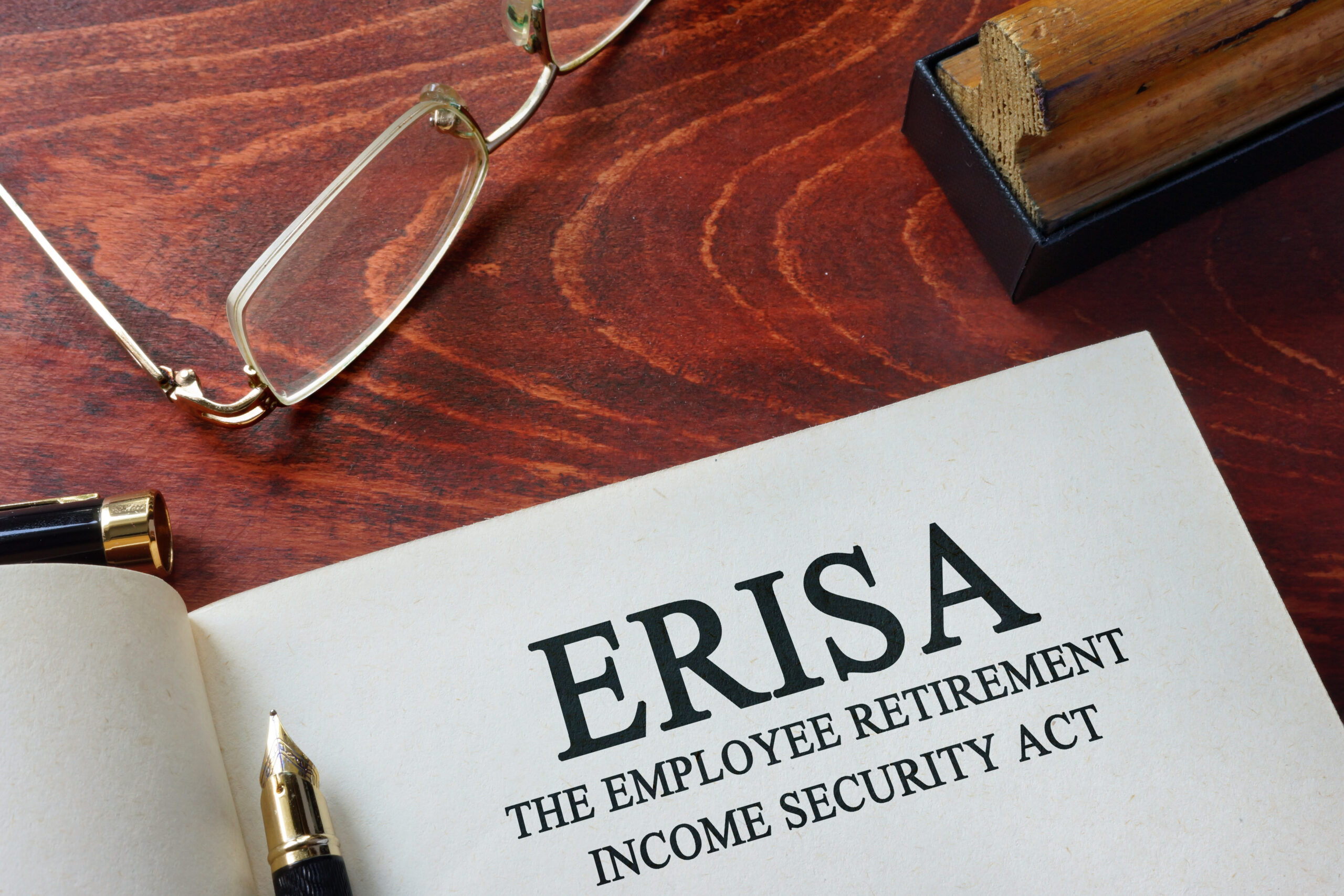By: Editorial Staff, Date: July 23rd, 2024
ERISA (Employee Retirement Income Security Act) is a federal law that sets minimum standards for retirement and health plans in the private sector. One of its key components is the fiduciary duty, which requires plan sponsors and fiduciaries to act in the best interests of the plan participants and beneficiaries.
Understanding the fiduciary duties established by ERISA is essential for plan sponsors and administrators. But who qualifies as an ERISA fiduciary, and what are their duties? This article will define who qualifies as an ERISA fiduciary, outline their duties and responsibilities, and share best practices to avoid ERISA fiduciary breaches.

Who Qualifies as an ERISA Fiduciary?
ERISA defines a fiduciary as a person who has the authority to control and manage the operation and administration of an employee benefit plan. Typically, a “named fiduciary” is formally designated under the terms of an ERISA plan. However, anyone can be a fiduciary if they:
- Have authority or control over plan management
- Are responsible for the administration of the plan
- Provide investment advice for a fee or compensation
ERISA fiduciaries are held to strict standards and must act solely in the interest of plan participants and beneficiaries. They can be held liable in the event of a fiduciary breach.
Duties and Responsibilities of ERISA Fiduciary
- Duty of Loyalty: ERISA fiduciaries must act exclusively in the best interest of plan participants and beneficiaries, focusing solely on providing benefits and covering reasonable expenses. The interests of participants must be their utmost priority, avoiding self-dealing and any actions that would benefit themselves at the expense of the participants. This ensures that all decisions and actions of the fiduciary are aimed at safeguarding and promoting the rights of participants and beneficiaries.
- Duty of Prudence: Fiduciaries must perform their duties with the care, skill, prudence, and diligence that a prudent person would use in similar situations, adhering to the “prudent person” standard. This duty emphasizes the importance of process over outcomes, requiring fiduciaries to make well-informed and careful decisions regarding plan investments. To fulfill this duty, fiduciaries must conduct thorough research, consult with experts, and document the decision-making process. All actions must be based on diligent inquiry and analysis, reflecting engaged discussion and sufficient research.
- Duty of Adherence to Plan Documents: Fiduciaries must adhere to the terms of the plan documents, provided they are consistent with ERISA. Adherence to plan documents ensures that all actions align with the plan’s established guidelines, including its terms, policies, and procedures. Fiduciaries must fully know the plan documents and ensure the decisions follow these guidelines.
- Duty to Diversify Plan Investments: Fiduciaries are required to diversify plan investments to minimize the risk of significant large losses unless it is prudent not to do so. This approach is crucial for managing investment risks effectively. To comply with this duty, fiduciaries should avoid investing large amounts in a single security or type of security. They must consider the plan’s purpose, asset size, and prevailing financial conditions.
- Duty to Pay Reasonable Expenses: Fiduciaries must ensure that only reasonable expenses are paid from plan assets by carefully monitoring and evaluating the fees of service providers and investments. Plan service providers are required by ERISA to disclose their fees to fiduciaries. Maintaining transparency and prudence in fee management is essential to fulfilling this duty.
- Duty to Avoid Prohibited Transactions: ERISA and the Internal Revenue Code restrict certain transactions between employer sponsored retirement plans and “parties in interest,” including plan fiduciaries, counsel, employees, service providers, and covered employers. Fiduciaries must not engage in transactions involving the sale, lease, or exchange of property, lending money, or providing goods and services to these parties. They must also avoid using plan assets for personal gain or engaging in conflicts of interest.
How to Avoid Common ERISA Fiduciary Breaches
Violating fiduciary duties under ERISA can lead to significant compensation costs. To avoid breaches, fiduciaries must adhere to their core duties. Here are some guidelines to help avoid fiduciary breaches:
- Stay informed and updated about ERISA regulations and fiduciary duties.
- Consult experts, such as financial advisors and legal counsel, when necessary.
- Develop a robust process for decision-making, investment monitoring, and documentation.
- Regularly review the plan performance, fees, and legal requirements.
- Update the plan as necessary to ensure compliance with ERISA.
- Document all plan-related records, including investment decisions, communications, and fee disclosures.
- Diversify plan investments appropriately.
Understanding ERISA fiduciary duties is crucial for anyone involved in managing employee benefit plans. By adhering to the plan fiduciary duties, they can effectively fulfill their responsibilities and avoid costly breaches. Vigilance, transparency, and a commitment to the best interests of plan participants are the keys to successful fiduciary management.
Delve into the intricate world of ERISA litigation at our webcast: NextGen Legal Insights: Unveiling ERISA Litigation Trends
Reference: https://www.bclplaw.com/a/web/183775/An-Overview-of-Fiduciary-Responsibilities-Under-ERISA.pdf


